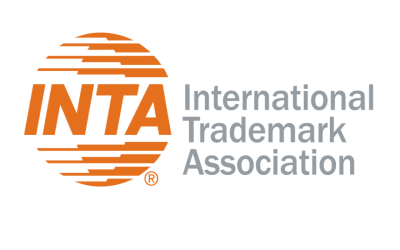Shein v. Temu
When Roadget Business Pte Ltd., owner of Shein, filed a complaint against PDD Holdings Inc., also known as Temu, for copyright infringement on August 19, it was just another battle in a years-long war that has raged in the US Federal Court system between the Asian mega companies.
The rise of the East Asian e-commerce titans
Shein started in 2008 in Nanjing China where it traded under the brand ZZKKO before moving its headquarters to China. Shein has been described as a fast fashion retailer that reacts to fashion trends and quickly capitalizes on these trends by mass-producing clothing for immediate consumption. This business model has been particularly effective in appealing to US-based Zoomers and their eternally suffering older siblings, Millenials, looking for fashionable, trendy clothing at an affordable price point.
Like Shein, Temu is a Chinese e-commerce company that sells everything from clothing and electronic equipment to facelift devices and chicken nugget-shaped plush pillows at absurdly low prices. These aggressive, alleged loss-leading pricing practices have led to rapid growth in the US.
Despite its success, Temu has faced ongoing complaints from creators across the internet who have found their content posted on Temu’s website. It is also a not-so-well-kept secret that knock-off products or unbranded dupes are sold on the platform, with Alibaba also recognizing that this contributes to its aggressive pricing strategy.
Federal Court disputes
In July 2023, Shein obtained an emergency temporary restraining order against Temu, from the Northern District of Illinois enjoining Temu from using any of the Shein marks or copyright-protected material on its website. In retaliation for Shein’s sleight, Temu instituted legal action against Shein in the District of Columbia, in December 2023 claiming, inter alia, that Shein was copying Temu, and they had abused the DMCA process and the US Copyright Office’s intellectual property regime to engage in anti-competitive practices that were crippling Temu’s business and that of Temu’s suppliers.
Roadget Holdings PTE. Ltd. v. PDD Holdings Inc. et al.
All of this brings us to the complaint that was filed by Shein, last week, at the District Court for the District of Columbia, wherein they claimed that Temu should be held “accountable for an unlawful enterprise built on counterfeiting, theft of trade secrets, infringement of intellectual property rights, and fraud, as they seek to infiltrate the US.” The complaint goes on to allege that Temu’s model is not an online marketplace, as it directs what products Temu can sell, encourages its sellers to infringe the intellectual property rights of others, and prevents sellers from removing products even if found to be infringing.
Shein further alleges that in its “relentless pursuit” of low prices it offers counterfeit and infringing products, and uses infringing photographs to market its product offerings, undercutting legitimate business and fair competition.
In addition to the commonplace allegations of infringement, Shein has claimed that Temu is operating fake Twitter accounts pretending to be Shein, and has further misappropriated Shein’s trade secrets through an employee of one of Temu’s affiliates under Temu’s direction.
Challenges faced by Shein
One of the main issues Shein will face in prosecuting its claim against Temu is the fact that Temu, Shein’s allegations notwithstanding, is an online marketplace that does have mechanisms to report infringement committed by sellers, including, for example, a DMCA process, that would afford Temu the right to claim indemnification from vicarious copyright infringement.
Trademark infringement can only be proved if Temu was responsible for confusing, misleading, or deceiving the market as to the source of Shein’s goods. Temu could argue that no reasonable person could have been misled about Temu’s association or affiliation with Shein, as Temu was not selling the alleged infringing products. The lengthy allegations made by Shein of Temu’s seller control and marketplace being a fraud appear to be an attempt to pre-empt Temu’s potential defense, that is, that all Temu does is provide a marketplace for the sale of goods, and they do not enjoy unfettered control over their sellers, as alleged.
The other issue is the evidentiary burden that Shein will face in proving the theft of Shein’s trade secrets, an allegation that is both scant on the details of how the theft occurred and sounds highly conspiratorial.
With a number of cases working their way through the court system, it would not be hyperbolic to state that there will be no quick resolution to acrimony between these rival companies.

Written by Melvin Naidu
Owner, JusTec Brand Protection
You may also like…
COLD PALMER: lessons for athletes looking to protect their image
Modern athletes are brands. Just like traditional brands, they generate revenue through their image, licensing their...
INTA to bring its 2026 Trademark Administrators and Practitioners Meeting to Baltimore’s historic Inner Harbor
New York, New York—September 30, 2025—The International Trademark Association (INTA) is pleased to announce that it...
New Minister appointed with responsibility for intellectual property
The UK Intellectual Property Office (UKIPO) CEO has welcomed the new Minister. Kanishka Narayan MP has been confirmed...
Contact us to write for out Newsletter














